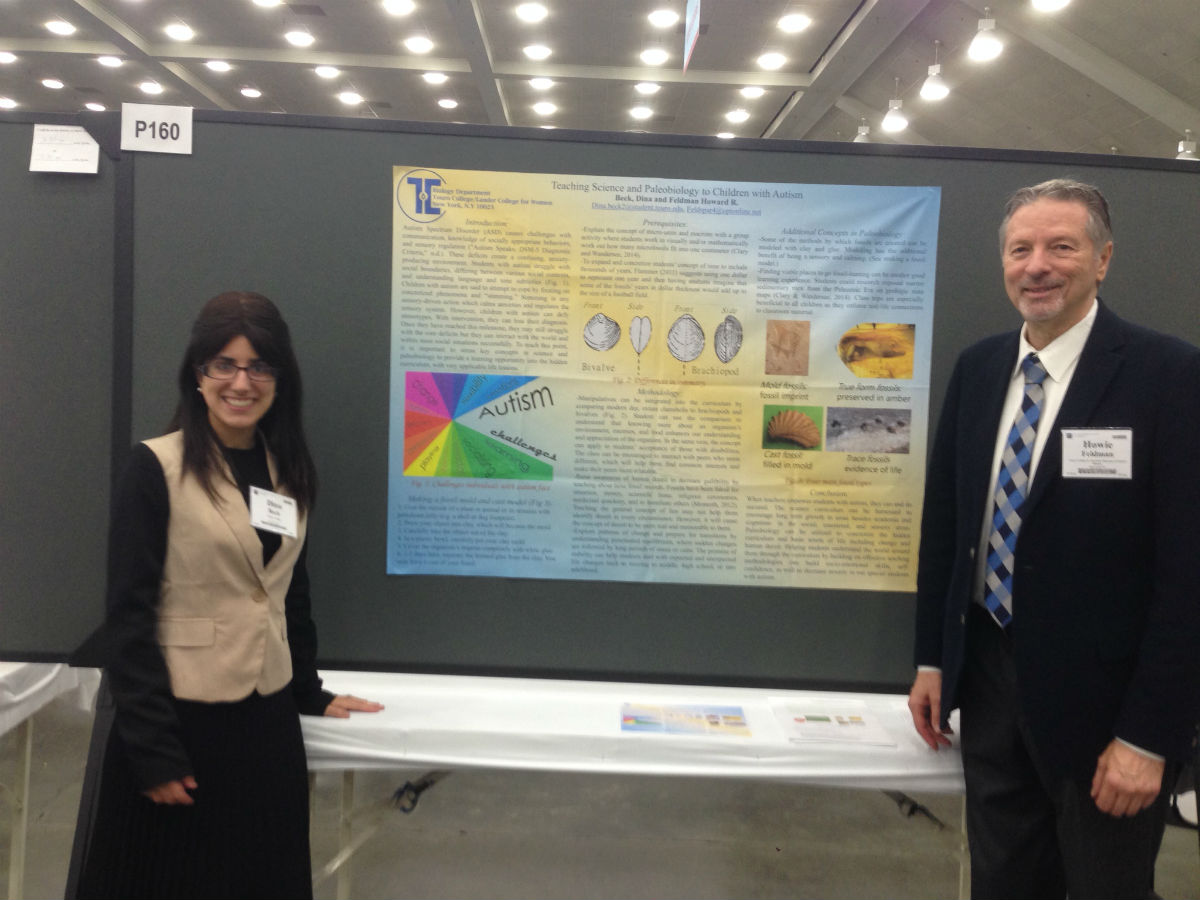Science May Help Autistic Children Improve Social Skills
Lander College Student Presents Findings at Baltimore Conference

At first Dina Beck-Billig wanted to be a doctor, but after careful consideration she decided to find an alternative path. It wasn’t that the prospect of a career in medicine didn’t excite her anymore; it did. Rather, she couldn’t see herself waiting to get through medical school and the prolonged road to becoming a licensed physician when she wanted to get started on the path to helping people right away.
Instead, she settled on a field in which she could translate her interest in science to help others from the get-go: special education.
So far the early returns are promising, as Beck-Billig, a senior at Touro’s Lander College for Women–The Anna Ruth and Mark Hasten School (LCW) in Manhattan, and Dr. Howard R. Feldman, a paleontologist and LCW biology professor, presented their poster, “Teaching Paleobiology to Children With Autism,” at the 2015 Geological Society of America (GSA) annual meeting in Baltimore, Md.
The thesis of the presentation—which comes from Beck-Billig’s personal experiences with autistic students, as well as secondary research—is that individuals with autism will thrive in a curriculum heavy in science, a subject rooted in facts more than ideas, and in the process, pick up important social cues.
“Children with autism have restrictive interests and fixations, but these areas of special interest can be harnessed academically,” said Beck-Billig. “When these curiosities are nurtured, the students can become verbally passionate about what they love and the fixations can be used to help motivate them to interact with the world and people through their subject.”
Beck-Billig’s interest in children with autism and other special needs began when she was part of a group of women who volunteered at a group home for the disabled, reading and singing to the young residents before bedtime. The staff at the home told her that it had a profound effect on the children.
“They said there was a noticeable change in the kids on the nights we were there,” she said. “It made a big difference in their lives, happiness and ability to interact.”
She later volunteered for several other organizations that specialize in helping children with disabilities and then began working as a student teacher, after-school instructor and private tutor in public schools, assisting children with special needs. An education/special education major, Beck-Billig will graduate at the end of the fall semester and plans to take the New York State Teacher Certification Examination.
After Beck-Billig, 20, from Brooklyn, initially submitted her ideas to Dr. Feldman in the form of a 15-page research paper, the professor suggested they present it at the upcoming GSA conference.
“The presentation opened up my eyes to the different populations of people with autism. I met with parents of children with autism, kids with autism and even college professors who had autistic students in their classes,” said Beck Billig. “I haven’t really worked with college-age students with autism so it was very interesting to hear their impressions. I look forward to making a difference in the lives of those with autism and other special needs.”

